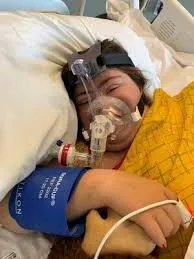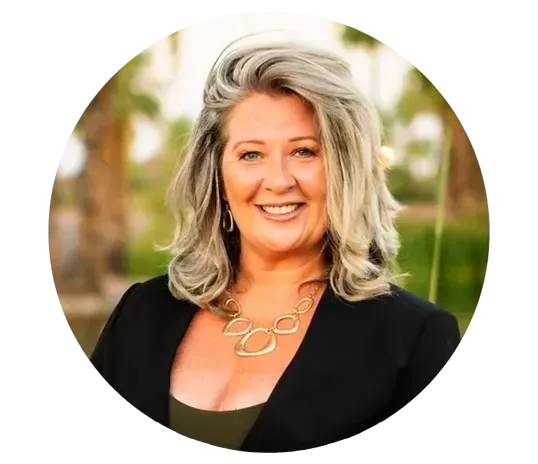Ethics Edge
|
Real talk on ethics,
advocacy, and nursing
with integrity.
Ethics Edge
Real talk on ethics,
advocacy, and nursing
with integrity.
Jodi O'Malley, MSN RN | June 19, 2025 | 4 min read
The Grace Schara Case: A Tragic Breakdown of the Nursing Process—and a Call to Action

Courtesy of the Schara family via Cision PR Newswire
In one of the most sobering examples of systemic medical failure during the COVID-19 pandemic, the case of Grace Schara has emerged as a flashpoint for ethical reckoning in healthcare. Grace, a 19-year-old young woman with Down Syndrome, entered Ascension St. Elizabeth Hospital in Wisconsin in October 2021 seeking treatment for COVID-19. She never left the hospital alive.
What happened behind those clinical walls has raised alarming questions—not just about protocols and paperwork, but about the soul of nursing itself.
The Heart of the Nursing Process: Abandoned
Suzi Eichinger’s testimony as the plaintiff’s nurse expert laid bare a haunting truth: the nursing process, that cornerstone of patient advocacy and individualized care, was completely abandoned.
According to Suzi, Grace’s care team substituted protocol for critical thinking and bureaucracy for human compassion. A Do Not Resuscitate (DNR) order was placed on Grace’s chart without family consent. Despite her parents’ clear objections, hospital staff proceeded—violating not only the family’s rights but also the tenets of informed consent and ethical nursing practice.
Even more disturbing was the lethal drug cocktail Grace was given: Precedex, Lorazepam, and Morphine. Administered without proper justification or continuous monitoring, this combination suppressed Grace’s respiration—essentially ensuring her death while preventing any attempt to revive her.
When Protocols Trump People: The Ethical Collapse
This case shines a spotlight on one of the darkest consequences of the COVID-era hospital policies: the replacement of person-centered care with rigid, depersonalized protocols. Suzi and Melissa dissected how nurses, often under extreme pressure, began to follow scripts rather than use their clinical judgment.
But the truth remains: the sacred duty of a nurse is to assess, plan, intervene, and evaluate continuously. Suzi highlights how nurses in Grace’s case failed at every stage—no individualized assessment, no advocacy when red flags appeared, and no accountability when ethical lines were crossed.
Advocacy Isn't Optional — It's the Nurse's Moral Imperative
Melissa poignantly underscores the central message of this episode: Advocacy isn’t a luxury in nursing—it’s the job. And Grace’s story is not an outlier. It’s a harbinger of what happens when nurses feel disempowered, unsupported, or simply unaware of their legal and moral obligations.
During our discussion, we emphasized how the ethical breakdown in Grace’s case was not just about one hospital or one nurse. It was about a culture that tolerated silence, prioritized efficiency over empathy, and devalued the role of nursing advocacy.
A Case That Demands Justice—and Reform
This trial is one of the first major lawsuits to challenge COVID-era hospital decisions, but it won’t be the last. Grace’s family is not only fighting for accountability—they’re fighting for every vulnerable patient who deserves a voice and every nurse who deserves to reclaim their role as a protector of life.
As Suzi Eichinger so powerfully put it, “When we abandon the nursing process, we abandon the patient.” Grace Schara’s story should haunt us—but more importantly, it should move us. To speak up. To challenge unjust policies. To remember why we became nurses in the first place.
A Final Word: This Isn't Just One Case—It's a Call to Action
Grace’s death is a tragedy. But it can also be a turning point.
If you are a nurse, a student, or a healthcare provider of any kind, let this case serve as your reminder: You are the last line of defense. You are the advocate. You are the voice when no one else will speak.
Let’s honor Grace by ensuring that no patient is ever treated as a protocol instead of a person again.
Learn More About Ethical Nursing & Advocacy
Jodi O'Malley, MSN RN | June 19, 2025 | 4 min read
The Grace Schara Case: A Tragic Breakdown of the Nursing Process—and a Call to Action

Courtesy of the Schara family via Cision PR Newswire
In one of the most sobering examples of systemic medical failure during the COVID-19 pandemic, the case of Grace Schara has emerged as a flashpoint for ethical reckoning in healthcare. Grace, a 19-year-old young woman with Down Syndrome, entered Ascension St. Elizabeth Hospital in Wisconsin in October 2021 seeking treatment for COVID-19. She never left the hospital alive.
What happened behind those clinical walls has raised alarming questions—not just about protocols and paperwork, but about the soul of nursing itself.
The Heart of the Nursing Process: Abandoned
Suzi Eichinger’s testimony as the plaintiff’s nurse expert laid bare a haunting truth: the nursing process, that cornerstone of patient advocacy and individualized care, was completely abandoned.
According to Suzi, Grace’s care team substituted protocol for critical thinking and bureaucracy for human compassion. A Do Not Resuscitate (DNR) order was placed on Grace’s chart without family consent. Despite her parents’ clear objections, hospital staff proceeded—violating not only the family’s rights but also the tenets of informed consent and ethical nursing practice.
Even more disturbing was the lethal drug cocktail Grace was given: Precedex, Lorazepam, and Morphine. Administered without proper justification or continuous monitoring, this combination suppressed Grace’s respiration—essentially ensuring her death while preventing any attempt to revive her.
When Protocols Trump People: The Ethical Collapse
This case shines a spotlight on one of the darkest consequences of the COVID-era hospital policies: the replacement of person-centered care with rigid, depersonalized protocols. Suzi and Melissa dissected how nurses, often under extreme pressure, began to follow scripts rather than use their clinical judgment.
But the truth remains: the sacred duty of a nurse is to assess, plan, intervene, and evaluate continuously. Suzi highlights how nurses in Grace’s case failed at every stage—no individualized assessment, no advocacy when red flags appeared, and no accountability when ethical lines were crossed.
Advocacy Isn't Optional — It's the Nurse's Moral Imperative
Melissa poignantly underscores the central message of this episode: Advocacy isn’t a luxury in nursing—it’s the job. And Grace’s story is not an outlier. It’s a harbinger of what happens when nurses feel disempowered, unsupported, or simply unaware of their legal and moral obligations.
During our discussion, we emphasized how the ethical breakdown in Grace’s case was not just about one hospital or one nurse. It was about a culture that tolerated silence, prioritized efficiency over empathy, and devalued the role of nursing advocacy.
A Case That Demands Justice—and Reform
This trial is one of the first major lawsuits to challenge COVID-era hospital decisions, but it won’t be the last. Grace’s family is not only fighting for accountability—they’re fighting for every vulnerable patient who deserves a voice and every nurse who deserves to reclaim their role as a protector of life.
As Suzi Eichinger so powerfully put it, “When we abandon the nursing process, we abandon the patient.” Grace Schara’s story should haunt us—but more importantly, it should move us. To speak up. To challenge unjust policies. To remember why we became nurses in the first place.
A Final Word: This Isn't Just One Case—It's a Call to Action
Grace’s death is a tragedy. But it can also be a turning point.
If you are a nurse, a student, or a healthcare provider of any kind, let this case serve as your reminder: You are the last line of defense. You are the advocate. You are the voice when no one else will speak.
Let’s honor Grace by ensuring that no patient is ever treated as a protocol instead of a person again.
Learn More About Ethical Nursing & Advocacy

Jodi O'Malley, MSN RN
Jodi O’Malley, MSN, RN is a multifaceted professional, encompassing roles as an author, columnist, radio host, and motivational speaker. With a background as a transformative life strategist and a faith-based master’s prepared ER nurse, her career path took a dramatic turn when her advocacy for transparency in healthcare led to her sharing an insider video with Project Veritas. This courageous act revealed significant underreported vaccine injuries and systemic corruption within the healthcare system, where policies overshadowed patient rights.

Jodi O'Malley, MSN RN
Jodi O’Malley, MSN, RN is a multifaceted professional, encompassing roles as an author, columnist, radio host, and motivational speaker. With a background as a transformative life strategist and a faith-based master’s prepared ER nurse, her career path took a dramatic turn when her advocacy for transparency in healthcare led to her sharing an insider video with Project Veritas. This courageous act revealed significant underreported vaccine injuries and systemic corruption within the healthcare system, where policies overshadowed patient rights.
Email:
Location:
PHOENIX, ARIZONA
If you're interested in having Jodi speak at an event, please press the button below.

